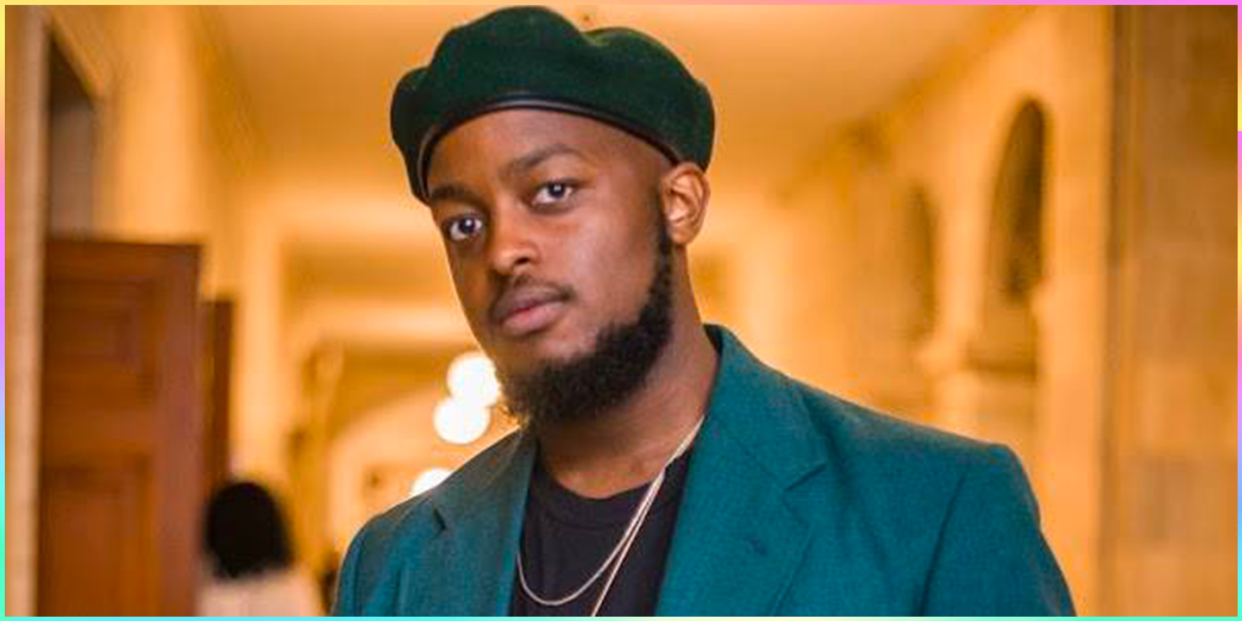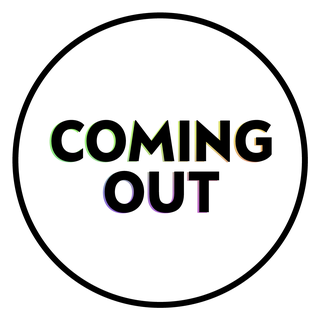Why Coming out as Bisexual Means I'll Never Be Fully Accepted

In OprahMag.com's series Coming Out, LGBTQ change-makers reflect on their journey toward self-acceptance. While it's beautiful to bravely share your identity with the world, choosing to do so is entirely up to you—period.
No coming out story is the same, but they all require one basic action: Taking your inner truth, and saying it out loud. But what happens when those words are brushed under the rug and ignored?

Though Steven Underwood has already come out as bisexual to his family, he feels that a significant part of him—the part that is attracted to men—is consistently overlooked. When his family asks about his life, they ask about the women he's seeing. It's as if he'll only be accepted if he's partially seen. "My family knows who I am. They choose not to see it," he writes.
In this essay for OprahMag.com's Coming Out series, Underwood—in conversation with another bisexual man—grapples with the feeling of being one-foot-in, one-foot-out of both queer and straight communities. He likens the experience of bisexuality to an interruption, a curiosity that is never quite accepted.
I tried coming out as bisexual to my family before in an MTV News article about found families. The article was a tightrope walk I’m familiar with as a writer: trying to tread harsh personal grounds barefoot and exposed. It was direct—if only my family had cared to open the link I shared in the group chat.
But no one in my family read it. Or if they did, they didn’t read it well. They still wonder, still ask me with wry smiles, what women do I even like. My family elides my sexuality during my annual visit back to my hometown of Columbus, Ohio. There’s always a fixation on who I am sleeping with, but a repudiation of the person I actually am.
I’ve always felt insulted that my family never read that article. Instead, they talk a lot about my writing career, giving me suggestions for topics they'd like tackled. My grandfather has taken to pitching me different biblical takes I could talk about to enlighten the public on the Truth of Christianity and “the righteousness of the Black man in its gospel.” My mom has her own fanfiction of a time when I’ll cast her and my sisters in a made-for-tv movie.
As far as I can tell, they’re performing around my open secret. One I’m not hiding in the slightest—but I’m not ready to repeat. What would I gain from another attempt to prove my family’s unconditional love? Chances are, my “coming out” again would be rewarded with a self-congratulatory celebration of my family’s unconditional tolerance of me.
If their love was truly unconditional, there would be no need for tolerance, or even celebration. My sisters never had to come out straight. They never have to feel like they’re interrupting the family for some grand moment of their own realization.
But as a bisexual man, I find I am always intruding merely by existing, or co-existing. In queer communities, female attraction makes my existence troubling. In straight communities, my same sex attraction makes my existence confusing.
At least I’m not alone.
*
Jay (not his name) and I first met on Twitter. Jay was a different kind of man then: sensitive, fragile in a tentative way. We shared poetry discreetly, in a sheltered moment between Black boys who understood the shadow of the Midwest and its masculinity.
Eventually, Jay messaged me asking, “Is it okay to consider myself Bi if I never had sex with a man before?”
I had the explanation I wanted to give, and the explanation that was reality. I chose to do both by doing neither. Instead, I offered the explanation that I wish someone had given me before lovers and family tried to guide my direction based on what they wanted from me. “There is a difference between sexual performance and your sexual identity. The difference is how you define yourself,” I said.
“I was capping when I said that, I definitely slept with a man before that conversation,” Jay responded later as we spoke over voice notes. It was a nice change of pace, seeing as we never had the time to spend in each other’s presence physically before, despite the community we formed. I suppose you cannot share emotional poetry with another Black man and not expect there to be some semblance of love. I assumed as much about Jay from our past conversations about sexual fluidity. That crescendo of being seen and wanted: the fear of what that desire might mean.
Not long after this confession, on a podcast with a following in the millions, Jay was publicly outed as bisexual by his then-girlfriend and mother of his child, a prominent celebrity. From then on, his name, reputation and sexuality became an object of fixation across the internet.
Jay’s voice was its own tempest as he recounted a story I had known for months, but never heard him say out loud: “I was outed in a very public way, in a way that was ‘Googleable, in a way that shattered me and sent me to therapy, by someone I loved,” he said.
Jay’s outing was the catalyst for his personal unraveling. While the narrative of stigma usually focuses on dating, coming out may also damage support systems—something closeted Bi men fear losing. So much of male existence is about towing a line of acceptance that queerness threatens. It doesn’t matter if the friendships weren’t of value, as proven by how easily they were shattered after coming out. It only matters that the relationship felt of value. It’s possible to lose people that once made you feel uplifted and accepted.
And within queer spectrums, we’re often struggling against the narrative of “passing,” or the idea that Bi people are attempting to benefit in some way from our openness to heterosexual romances. We struggle against that idea when trying to find safety within our queer spaces.
The stigma of bisexuality forced Jay to flee his home and newborn daughter in Los Angeles for a period. The spaces that should’ve been safe for him no longer were. He underwent intense therapy and depression in his hometown of Chicago, reassessing his boundaries after rampant online, professional, and public harassment. “My sense of community with the LGBT+ community is non-existent. A lot of the damage comes from my outing. I feel fractured from it all,” he said.
Since Jay was outed, he has been challenged online by straight and queer men as well as women on a near weekly basis about his sexuality. They post pictures of Jay with the mother of his child, and deliberately discuss how she had a child with a “gay man,” erasing his truth. Every time these interruptions occur, old wounds are unsealed.
The reaction to Jay’s sexuality continues to interrupt his life. Perhaps it’s because our existence as bisexual men interrupts the conventional definition of “queer,” which is “same-sex attraction.”
Sometimes, I think others perceive us as interrupting their existence, just like I felt I would be interrupting my entire family’s status quo by coming out. My life becomes about clarifying the language of why I deserve to be in a space, whether it’s in my family dinner or in the queer community.
*
For all the talk of passing, the truth is, my family never saw me as anything resembling straight. And I figured out my sexuality when I was six years old.
My mom had just slapped me for putting my hand on my hip. It wasn’t something I naturally did, despite how effeminate and lithe I was as a child. I did it because Matt on the cartoon Digimon posed like that a lot. He was my favorite, and I wanted to be like him. It was an innocuous action, but it was labeled “gay.”
It was disheartening because at the time, I thought I was safe because I wasn’t gay. I thought boys were alluring and I held my gaze upon them often, frozen by their composure and the way excitement just possessed us and pushed us to openness. But I liked girls. I had crushes.
At age six, I thought everyone liked everyone else, boys and girls, the same way I did. Based on my upbringing, it always seemed sinful for a man to choose to love another man. At that moment, I learned my mother and my cousins felt differently. It was a sin to just be born with the inclination toward loving another man.
By coming out all these years later, I’m making myself vulnerable to the idea of other people’s judgements, and what it means to exist as bisexual, whether I care for them or not. Now, my family knows who I am; they just choose not to see it. I don’t think my family’s love is conditional—I think their pride is.
I’m not worried about coming out to my family, again, like in this article. I’m more concerned with when people—family and friends— will actually be ready to let me in.
For more stories like this, sign up for our newsletter.
You Might Also Like
